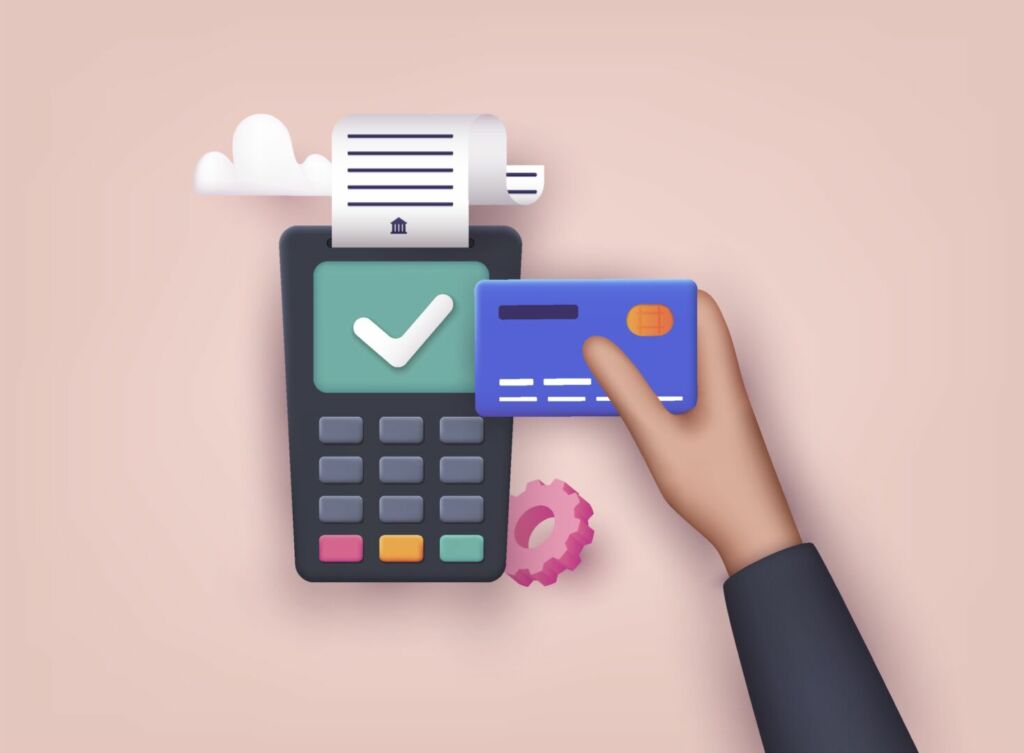A Buyer’s Guide to Card Payment Processing
Running a business is not always simple. That’s why it’s important for you, as the business owner to choose the right tools you need for your business to function in the best way it can.
Finding a way to process card payments that suits your business operations to a tee is crucial so it’s a good idea to compare card processing options before purchasing.
Nowadays, there are many ways businesses can accept card payments. Choosing what’s right for you depends on a range of different factors.
Possibly is here to help. We’ve created a simple, no-frills guide to help you better decide what your business might need in terms of a card payment processing solution, the benefits of this useful tech, the fees included and how to compare options. With this guide, you’ll be one step closer to running a smarter and better business.
THE BENEFITS OF ACCEPTING CREDIT CARDS
The first step in considering a credit card processing services is deciding whether they’re a cost-effective solution for your business. This is usually weighed up against the type of business you run, your sales volume, and how tech-savvy you and your staff are.
Many merchant service providers offer options that come with features to smooth business operations and make your life as the business owner, easier.
There are a number of benefits that card payment processing can provide for businesses of any size:
- Cater to cashless customers. Credit and debit card payments are quickly becoming the most common form of payment. And as many people choose to pay with card these days, you want to make sure you’re capitalising on sale opportunities and avoiding loss by turning customers away if they don’t have cash. You can expand your customer base with the convenient option of accepting card payments.
- Transactions can be processed quickly. Depending on the provider, funds can be transferred from the card to your business bank account, even as quickly as immediately. This factor alone can be a very timely relief if your business already experiences a very tight cash flow.
- Internet sales. If your business offers web-purchasing, then credit card processing is a clear must. Card processing services remove the security risk and additional burden of messy paperwork by processing all transactions directly through the web. It’s easy to use and the processing service provider will have its own secure-payment system so both you and your customers can have confidence knowing that the payment experience is safe.
TYPES OF CREDIT CARD PROCESSORS
Credit card processing can provide added convenience for your customers as well as giving you a financial boost. There are many different types of credit card processing providers outlined below:
Banks
You can contact your bank to see if they have credit card processing solutions that will fit your business needs. However, it can be tough to get approval from your bank as there is more paperwork to go through and complete as well as greater scrutiny into your business from the bank’s end.
Third party processors
A third-party processor would not require a merchant account. This type of processor would take care of different aspects of the transaction process such as authorization, billing, reporting, and payment settlement.
Independent sales organizations
An independent sales organization (ISO) is a registered card merchant broker that normally represents third party processors. They set up and service credit card merchants but they don’t do the actual processing. ISOs are normally less selective than banks but their transaction fees are generally higher.
Financial service provider
These include MasterCard, Visa, and Discover which require you to open a merchant account through an acquirer. Only American Express gives you the option of applying directly through them.
HOW TO QUALIFY
To get a card processing system, most providers will complete a background check on your business.
The most important thing many providers will want to know is if your business is likely to have a high rate of ‘chargebacks’. A chargeback is a reversal of a sale that had already been credited to your account, usually because of an error from the cardholder’s bank, or sometimes fraud. Previous statements will help providers gauge your charge and chargeback volume.
Sellers will also consider the type of credit card transactions your business experiences. Card-present transactions that require the physical card to be swiped and followed by a completion of the customer’s signature in-person is considered to be much safer from the provider’s perspective, rather than an over-the-phone payment. Being a higher-risk business operator won’t necessarily prevent you from qualifying for a card processing system, but it may drive up costs in fees.
MOBILE CREDIT CARD PROCESSING
There’s an evolving range of equipment and tech that can better enable you to accept credit card payments. Mobile card processing may be just the solution for you, giving you the luxury of both convenience and profitability.
Providers now offer several wireless solutions that can cater to your standards for security as well as your level of comfort with technology. Mobile credit card processing can drastically improves the simplicity and cost efficiency of your payment process.
At a glance, this type of solution can…
- Let you accept payment via all major debit cards and credit cards
- Have compatibility with a wide range of mobile processing equipment and brands, including both Apple and Android devices
- Allow you to stay connected with your business around the clock and drive more sales by accepting credit card payments everywhere you go. Greater convenience leads to greater profit
- Guarantees payment and funds while assessing a low per-transaction fee
What’s more, you won’t be limited to just credit card payments, you’ll also be able to process checks and PayPal payments on the go. This is a really neat solution for businesses that are fast-moving and rarely static.
Mobile payment options: the details
- Smartphones. You can use your smartphone as a mobile credit card processor simply by signing up for a service with an acquirer, installing their mobile payment app and connecting a card reader that either plugs into the device or connects wirelessly via Bluetooth.
- Laptops or tablets. This will work similar to a smartphone but with the added benefit of more storage space meaning more information available to you. This requires a stable internet connection and a card reader or PIN pad. This is considered to be one of the most cost-effective solutions.
- Wireless terminals. For larger operations, wireless terminals provide the exact same functions as a standard desktop system but can accept a wider range of payments in a way that’s more mobile-friendly. This option uses cellular or WiFi connectivity and is popular among businesses in the food service industry, outdoor festival establishments and delivery personnel.
At the end of the day, the solution you choose should be there to provide a positive customer experience. This means, seamless business transactions that enable customers to easily pay for goods without any fuss.
COSTS TO CONSIDER
The fees you will have to pay will depend on the merchant service provider and the features you want to be included. You could pay fees for any of the following:
- Per transaction fee. These fees are charged per payment through the card processing terminal and is generally anywhere between $0.10 to $0.30 for card-present transactions and $0.20 to $0.50 for card-absent transactions.
- Monthly credit card summary fee. This fee covers the cost of issuing monthly credit card transaction statements and is usually around the $10 mark.
- Equipment costs. This would probably be the biggest up-front cost and would likely be for the terminal to swipe the credit cards. This could range from $150 to $350 and $250-$500 if you want a printer included. Wireless ones could cost you $500 to $1000. Leasing is also an option if that better fits your business and could cost as little as $25 a month.
- Application or set-up fee. Not all sellers charge this so it’s important you understand if this is an added cost you need to factor in so you don’t have any nasty surprises. This could be a fee of around $200.
More fees?
On top of these basic fees, there are many added fees that merchant service providers might charge. These could include annual service fees, programming fees, internet processing fees, shipping and handling, American Express set-up fees, software/online fees, customer support fees and statement fees. These are all things to look out for so make sure that when you compare options, you know all the costs involved, up-front.
Note: don’t make your decision on price alone. Saving a small percentage on a solution might not be beneficial to your business in the long run. You want to make sure that you choose a vendor and an option that can provide the service you need to stay financially viable, successful and help you run your business cost-effectively into the future.
POINTS TO CONSIDER BEFORE PURCHASING
There are many aspects to consider before you make your decision on which credit card processing solution you go with.
- Reliability of customer support. Find out if the customer support is reputable and proactive with the provider you are looking into. i.e. if you have to typically wait several minutes or longer before you can speak to a customer support representative, then that’s going to hinder the productivity of your business operations.
- Standard of equipment. Know how reliable the provider’s equipment is or how quickly it can be serviced or replaced in the event that something goes wrong
- Time for funds to be transferred. Providers differ on how long it takes for funds to be deposited to your account. Make sure you know the exact fund transferral timeframe before purchasing.
- Compare variable fees. Check the fees that tend to vary between different vendors. Some of these fees can be negotiable depending on the provider.
- Understand the full picture. Once you know all the fees that the merchant service provider will charge, figure out what your total cost would be based on your worst and best months and evaluate options accordingly.
- Accepted payment methods. Ensure that your potential provider can process the payment methods that matter most for your business and accommodate the way you accept payments.
- Read the contract. Read the contract in great detail so you have the full knowledge of the fees, minimum charges, the terms of the agreement and termination clauses. You don’t want any nasty tricks to pop up along the way.
- Ease of use. Not everyone is a tech expert. If your card processing system is simple to use, then it will be even simpler for you or your staff to operate. This means that your business can be more productive and your customers will in turn be happier with the overall experience.
Possibly is here to help you choose the right card processing solution to perfectly meet your business requirements. What’s more, it’s free!






